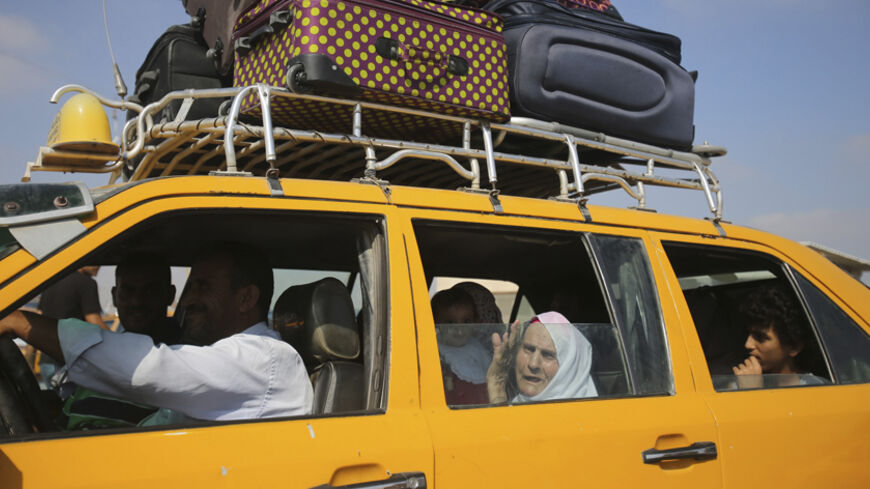RAFAH, Gaza Strip — Since 2007, Gaza’s border crossing to Egypt has become like a gun pointed at Gazans. Its closing recurs throughout the year, sometimes under the pretext of Egyptian national security and other times due to Palestinian divisions and Hamas’ control over Gaza. As a result, it has become a card that Egyptians play whenever they want to put pressure on Gaza’s inhabitants, and it is adding to Gazans’ suffering, especially with the tight Israeli blockade.
The terrorist operation in Karm al-Qawadis in Sheikh Zuweid city, north of the Sinai Peninsula, on Oct. 24, which killed more than 30 Egyptian soldiers, happened on Egyptian territory, and most tunnels between Egypt and Gaza were closed. Despite this, the Egyptian government and media quickly accused the Gaza Strip and its factions of carrying out the attack. Once again, the citizens and the crossing were victims of the deteriorating security situation in Sinai after the death of the Egyptian soldiers.



